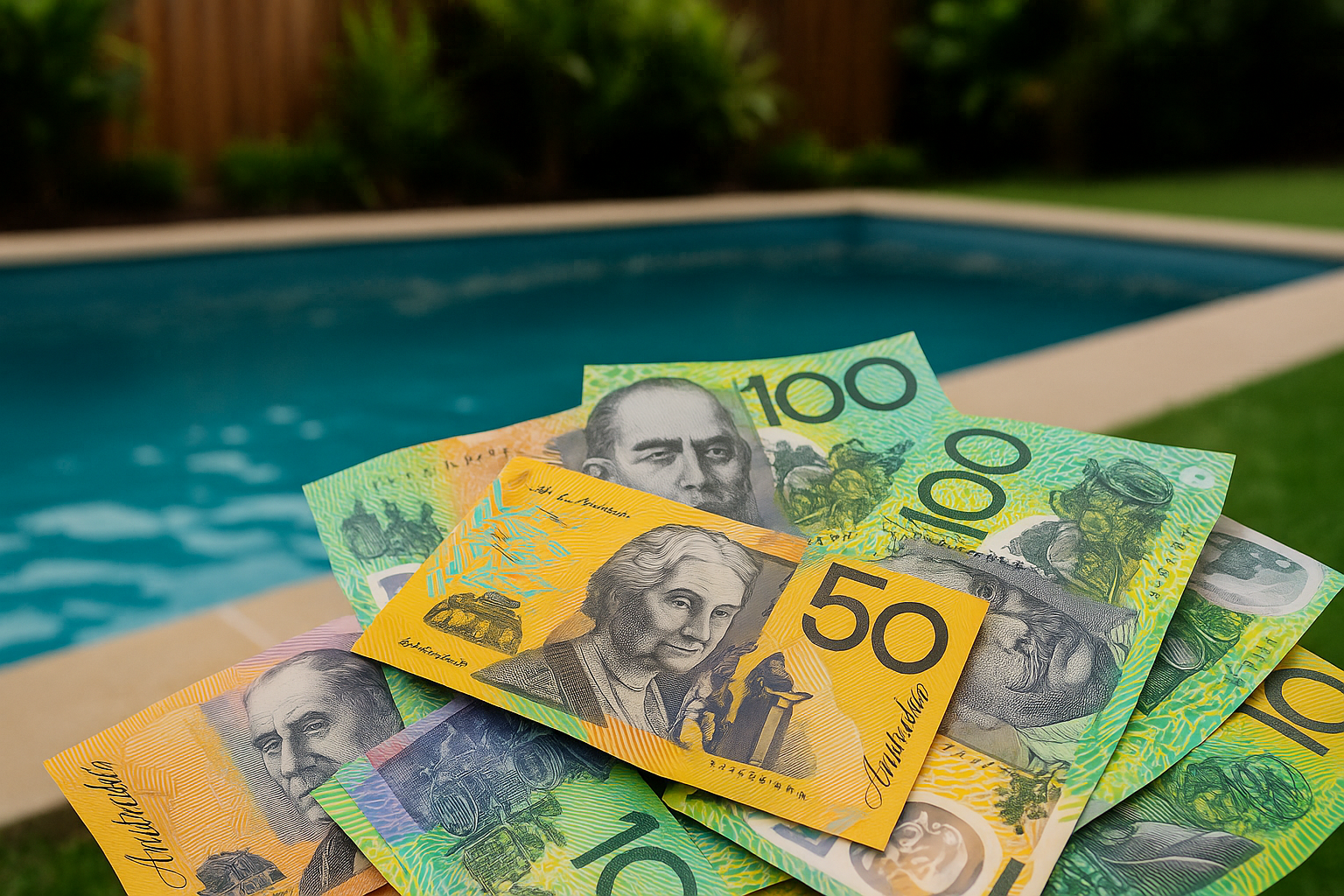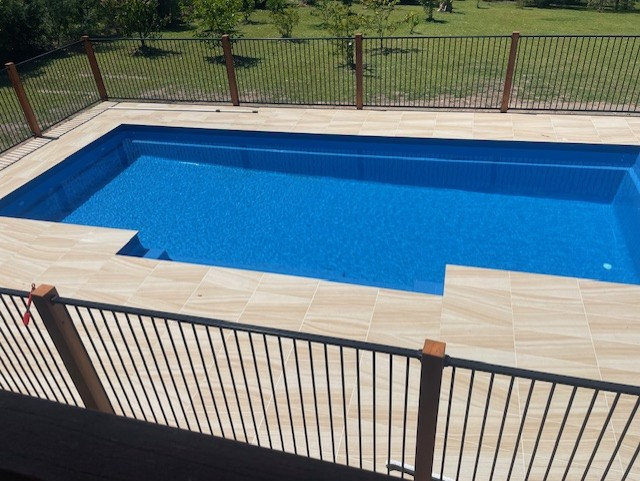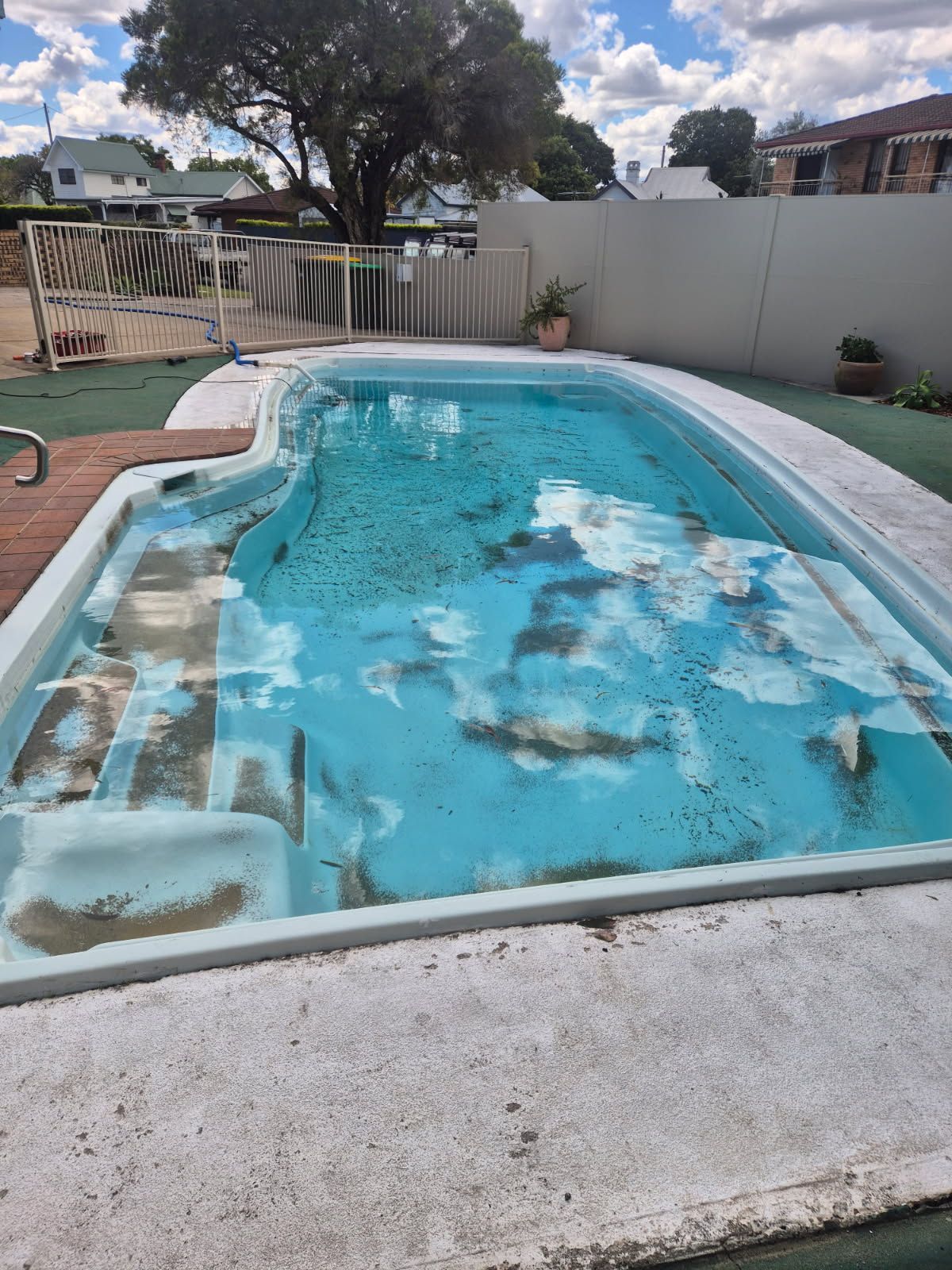What Size Swimming Pool Should I Get? [Comprehensive Guide!]
Selecting the ideal swimming pool size is a pivotal decision that goes beyond personal preferences. It's a choice that influences a range of factors, from the initial installation costs to the long-term enjoyment of your outdoor space.
The process of choosing a pool size begins with a vision. Picture your backyard transformed by the addition of a new pool. Consider the space it will occupy and the balance between the pool and other outdoor features like a patio, garden, or children's play area.
This initial vision will serve as a roadmap, guiding your decisions as you progress with your pool planning. Remember, your backyard is a blank canvas, and the pool is just one element of the masterpiece you're about to create.
Key Takeaways
- Understanding Your Needs: The size and design of your pool should be determined by your specific needs and preferences. This includes considering the primary purpose of the pool (recreation, exercise, or competitive swimming), the users of the pool, and the desired features (such as a shallow end for children or a lap lane for exercise).
- Pool Planning and Construction: Building a pool is a significant project that involves several stages, from pre-construction planning and design to obtaining council approval and the actual construction process. Choosing an experienced and reputable pool builder can help ensure a smooth process and a high-quality result.
- Pool Maintenance Considerations: Regular maintenance is key to keeping your pool clean and safe. This includes general pool maintenance, using a pool cover, installing proper fencing, maintaining the right balance of chemicals, and regular cleaning. The size of your pool will influence the amount of maintenance required.
Choosing the Right Swimming Pool Size: A Comprehensive Guide
This comprehensive guide is designed to assist you in navigating the various considerations, understanding common pool sizes, and offering advice on pool placement, construction, and upkeep.
Understanding Your Needs And Uses For a Pool
Recreational Purposes
A swimming pool serves as an excellent spot for family fun and relaxation. If your pool's primary purpose is for recreational activities, it's essential to consider a pool with both a shallow and deep end. This design allows for safe swimming for children and more experienced swimmers alike. It provides a space for everyone to enjoy, whether they're just learning to swim or they're seasoned swimmers who enjoy diving and underwater games.
Exercise and Lap Swimming
If you're a fitness enthusiast or a competitive swimmer, you'll need a pool that's long enough for lap swimming. A rectangular pool with a minimum length of 30 feet (approximately 9 meters) is recommended for this purpose. This length allows for continuous swimming without frequent turns, making it ideal for aerobic exercise and endurance training.
Competitive and Athletic Swimming
For competitive and athletic swimmers, pool depths should be more than your height. You should also have a pool that allows you to practice complete strokes to maximize your efforts. This means that the pool should be long and wide enough to accommodate different swimming styles, such as freestyle, backstroke, and butterfly.
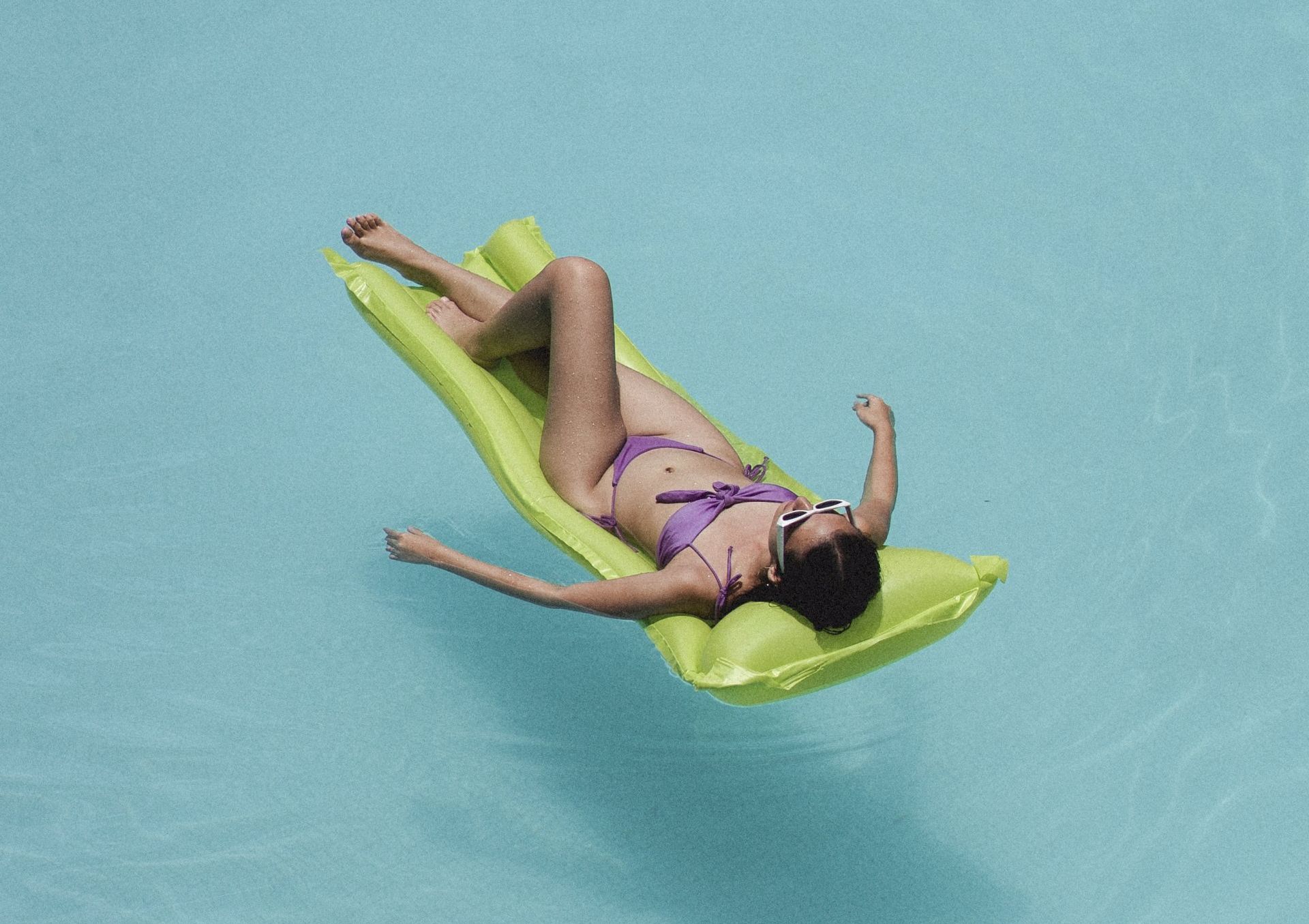
Popular Pool Sizes and Their Uses
Plunge Pools
Plunge pools are typically 5x3 meters, 6x4 meters to 7x3 meters. They are perfect for small backyards and offer a refreshing dip during hot summer days. Despite their small size, plunge pools can be a great addition to your backyard, providing a space for relaxation and cooling off. They're also a great option if you're looking for a pool that requires less maintenance and uses less water.
Family Pools
Family pools are usually 7x3 meters, 8x4 meters, or 9x4 meters. They provide ample space for family fun and games. These pools are designed to accommodate a variety of activities, making them perfect for families with children of different ages. They often include a shallow end for younger children and a deeper end for adults and older kids.
Lap Pools
Lap pools can be 9x2.5 meters, 10x3 meters to 15x3 meters. They are ideal for fitness enthusiasts who enjoy lap swimming. These pools are designed with length in mind, allowing for uninterrupted swimming. They're a great choice for those looking to use their pool primarily for exercise.
Be Mindful Of Factors Influencing Pool Size Choice
Available Space
The size of your backyard will largely determine the size of your pool. Make sure to maximize the use of your living space when designing your swimming pool project. Consider the layout of your yard and how the pool will fit with existing features like patios, gardens, and structures.
Frequency of Usage
The more frequently you use your pool, the more maintenance it will require. Consider this when deciding on the size of your pool. A larger pool may provide more room for swimming and games, but it will also require more cleaning and upkeep.
Budget and Financing
Consider your long-term financial planning when deciding on the size of your pool. Remember, pools cost money to install, operate, and maintain. Larger pools will be more costly in terms of maintenance and the amount of water needed to fill them.
Standard Pool Sizes
As a general guideline, here are some basic sizes for small, medium, and large pools:
- Small Pool of about 12' x 24' is approximately 3.66m x 7.32m
- Medium Pool of about 16' x 32' is approximately 4.88m x 9.75m
- Large pool of about 20' x 40' is approximately 6.10m x 12.19m
Remember, these are just guidelines. The size of your pool should ultimately meet your specific needs and preferences. Try looking at our MasterBuilt Pool size guide for your home dimensions.
Pool Placement Considerations
The placement of your pool in relation to your house and other structures is crucial. It's important to consider the best position for your pool without having to relocate trees or sewer lines. You'll also want to think about sun exposure, wind direction, and privacy. A well-placed pool can enhance the aesthetic appeal of your backyard, provide the best sun exposure during the day, and offer a level of privacy from neighbors.
Choosing the Right Pool Equipment
The right pool equipment is vital for maintaining a clean and safe swimming environment. The size of your pool will influence the type of equipment you need.
Importance of Choosing the Right Pool Filter
Choosing the right size filter for your pool is as important as choosing the right pool size. The size of your pool influences the choice of pool filter.
A filter that's too small may not effectively clean your pool, while one that's too large may be unnecessarily expensive. Your pool builder can provide guidance on the best filter for your pool size.
Pool Construction Process
Building a pool is a significant project that involves several stages. Understanding these stages can help you know what to expect and ensure a smooth construction process.
Pre-construction
This stage involves site & needs assessment, design, proposal, and engineering. Your pool builder will assess your backyard, discuss your needs and preferences, and create a design that fits your vision and budget. They'll also prepare a proposal that outlines the project's cost and timeline.
Council Approval
You'll need to get approval from your local council before construction can begin. This process can take several weeks, so it's important to factor this into your timeline. Your pool builder can often help with this process, ensuring that your pool design complies with local regulations and codes.
Pool Construction and Finishing
This includes the actual construction of the pool and finishing touches like fencing and landscaping. Depending on the size and complexity of your pool, construction can take anywhere from a few weeks to several months. Once the pool is constructed, finishing touches are added to enhance its appearance and safety. This can include installing a pool fence, landscaping around the pool, and adding lighting.
Choosing the Right Pool Builder
Choosing an experienced and reputable pool builder is crucial. They can help you navigate the entire process, from design to construction and maintenance. Look for a builder who has a strong track record, good customer reviews, and a portfolio of completed projects.
They should also provide a clear contract that outlines the project's cost, timeline, and what's included in the price.
Pool Maintenance Considerations
Regular maintenance is key to keeping your pool clean and safe. This includes general pool maintenance, covers, fencing, chemicals, and cleaning.
General Pool Maintenance
Regular cleaning, balancing water chemistry, and maintaining the pool equipment are all part of general pool maintenance. Depending on the size of your pool, you may need to spend several hours each week on maintenance tasks.
Pool Covers
A pool cover can help keep your pool clean, reduce water evaporation, and maintain a consistent water temperature. There are various types of pool covers available, including manual covers, automatic covers, and solar covers.
Fencing
Pool fencing is essential for safety, especially if you have young children. Your fence should be at least 4 feet high and have a self-closing, self-latching gate.
Chemicals
Maintaining the right balance of chemicals in your pool is crucial for keeping the water clean and safe for swimming. This includes regularly testing and adjusting the levels of chlorine, pH, alkalinity, and calcium hardness.
Cleaning
Regular cleaning is essential for keeping your pool looking its best. This includes skimming the surface for debris, brushing the pool walls and floor, and vacuuming.
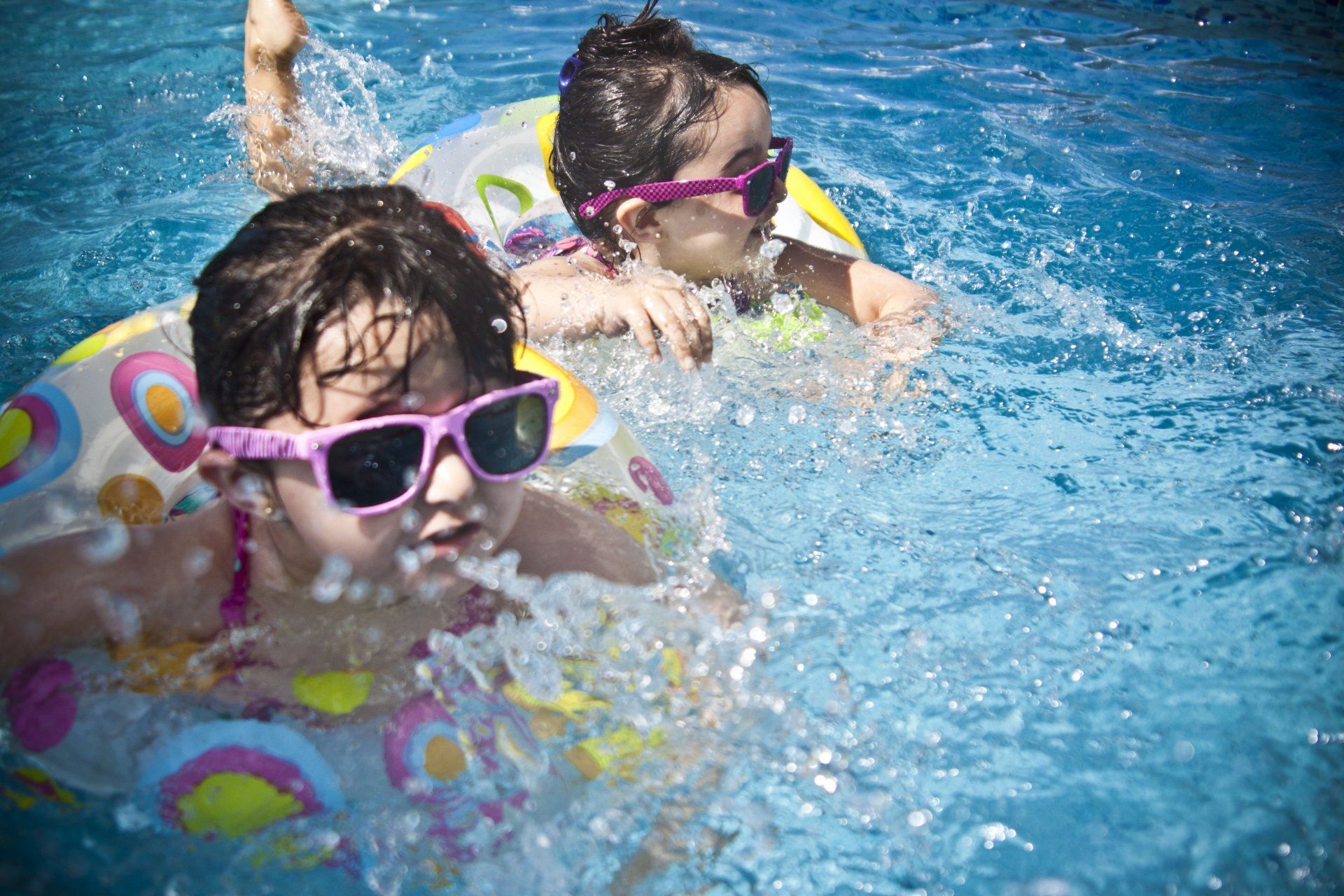
Considering the Pool Users
Who will be using the pool? If it's primarily adults, the pool's purpose can best determine its size. If kids will be using the pool, you'll want to incorporate a shallow end. Also, consider the size of your family and friends circle as it should play a part in the size of the pool you get.
A larger pool might be necessary for big family gatherings or parties. Remember, a pool that's too small can limit enjoyment, but a pool that's too big can be a waste of space and resources.
Planning Your Patio Space
How much patio space would you like to have around your pool? Ensure you have enough patio space around the pool for lounging, grilling, and other activities. Remember, the pool is just one part of your outdoor living space.
You'll want to have enough room for poolside furniture, a dining area, and possibly a fire pit or outdoor kitchen. Consider the flow of traffic around your pool and patio area. You don't want your outdoor space to feel cramped or crowded.
Accommodating Other Outdoor Features
If you're planning to have outdoor furniture, a grill, or an outdoor kitchen, you'll need to factor in extra patio space. These items mean that you’ll want extra patio space to accommodate them and still have room to move.
Think about the overall layout of your backyard. You want to create a harmonious balance between your pool, patio, and other outdoor features.
Understanding Your Constraints
Consider the available space in your backyard and any existing landscaping features. Your budget is also a significant factor in determining the size of your pool. Make sure your pool size aligns with your physical and financial constraints.
Also, consider the long-term costs of maintaining a larger pool.
Frequently Asked Questions
Conclusion, The Right Swimming Pool Size Is A Significant Decision
Choosing the right swimming pool size is a significant decision that requires careful thought and planning. It's not just about the size of your backyard or your budget, but also about your lifestyle, the pool's purpose, and the needs of those who will be using it.
By considering all these factors, you can ensure that your pool will bring you joy and satisfaction for many years to come. Remember, the perfect swimming pool isn't the biggest or the most expensive one—it's the one that fits you and your family's needs the best. Happy planning, and here's to many fun-filled days in your future pool!

